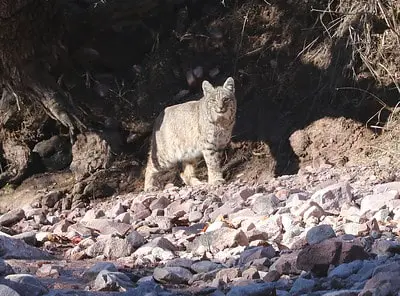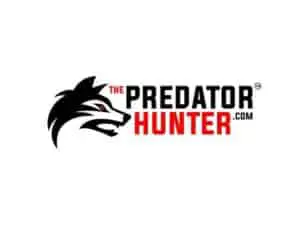If you are thinking about hunting bobcats in Tennessee, here a some of the significant regulations you will need to follow. Like all federal, state, and local laws, these are subject to updates and changes. It is your responsibility as a hunter to make sure you hunt both legally and safely.

In Tennessee, bobcat hunting season runs from November 19th to February 28, 2022 and Nov 18 to Feb 28, 2023. Hunting hours run from 1/2 hour before sunrise to 1/2 hour after sunset. A hunting license is required. There is no bag limit.
Purchase a Tennessee hunting license here.
Check out the Tennessee hunting seasons.
Related: First time hunting bobcats? Read this article on three tips for a successful bobcat hunt.
Related: Read my article on the laws for hunting coyotes in Tennessee.
Related: Learn the rules for hunting fox in Tennessee.
General rules and laws for bobcat hunting in Tennessee.
Using electronic callers and decoys when hunting bobcats in Tennessee.
Electronic calls, mouth calls or other types of game calls or predator calls may be used when hunting bobcat. Mechanical/ electronic decoys may be used as well.
While electronic callers are expensive, mouth and hand callers are cheaper but harder to use.
Read this article and watch the video to learn how to use a closed reed rabbit squealer.
Follow along as call manufacturer Brian Rush shows you three open reed calls you can learn and use today.
You can check the price for an electronic caller on Amazon.
Decoys are legal. You can read about some highly effective but inexpensive ($20) bobcat decoys here.
Pelt tags required for Bobcats. Bobcat pelts must be tagged with Tennessee U.S. CITES tags before being exported from the U. S. Contact your regional office for instructions.
Suppressors. The use of suppressors/silencers is legal for persons possessing the required federal license from the United States Department of Treasury. Hunters using these devices must have proof of such license on their person.
Illegal and prohibited methods of hunting bobcats in Tennessee.
Prohibited Acts
- Possession of ammunition except that as specifically authorized is prohibited while hunting. The use or possession and/or the accompanying of anyone using or possessing raccoon calls, squallers, weapons, ammunition, or climbers while training dogs is prohibited during training season, except raccoon calls may be used during authorized field trials.
- The use of dogs in taking or attempting to take deer or elk is prohibited. Taking or attempting to take deer being pursued by dog, or dogs, is prohibited.
- Juveniles under the age of eighteen (18) are prohibited from using handguns for the purpose of hunting.
- No person shall make use of bait to take wildlife unless the bait has been removed and any electronic feeder disabled at least 10 days prior to hunting.
- Possession of firearms prohibited while chasing coyote, fox, and bobcat with dogs from the first Saturday in November through the end of the deer season.
The use of the following equipment is prohibited:
- Predator calls while night hunting.
- Pod arrows (any pod-type device for holding drugs or chemicals on an arrow) or any drugs or chemicals used in pod arrows while archery hunting.
- Explosive arrowheads while archery hunting.
- Firearms capable of fully automatic fire.
- Firearms or archery equipment with any device utilizing an artificial light capable of locating wildlife.
- Any electronic light amplifying night vision scope, thermal imaging device or similar devices while in possession of a firearm or archery tackle between sunset and sunrise.
- Electronic calls or live decoys while hunting wild turkey, foxes, and waterfowl (except electronic calls are legal during the Conservation Season for Blue, Snow, and Ross’ geese).
- Rifles or handguns with full metal jacketed ammunition.
- Rifles or handguns with centerfire ammunition between 30 minutes after sunset and 30 minutes before sunrise.
- Any loose shot other than non-toxic (as approved by U.S. Fishing and Wildlife Service) or any shotgun shell loaded with shot other than non-toxic while hunting waterfowl, coots, gallinules, Virginia rails, and sora rails.
- Any firearm including air guns using archery bolts.
- Tracer ammunition.

